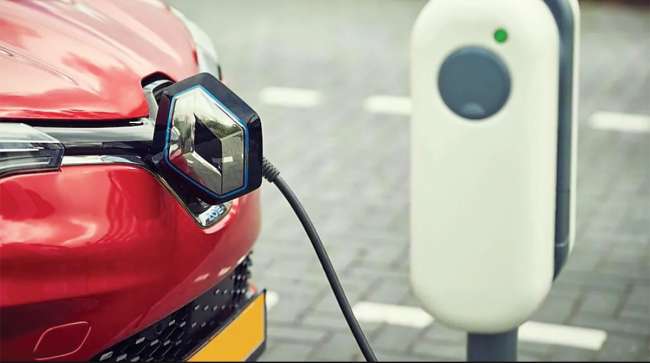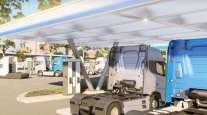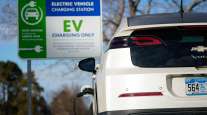Senior Reporter
Business, Freight Groups Oppose EV Charging Station Bill

[Stay on top of transportation news: Get TTNews in your inbox.]
A Senate bill aimed at addressing range anxiety for drivers of electric vehicles is facing pushback from key business stakeholders.
Groups representing retailers, the restaurant industry, cities and truck stops took aim at the Recharge your Electric Car on the Highway to Alleviate Range Gaps Effectively, or RECHARGE, Act.
In a letter to Sens. Chuck Schumer (D-N.Y.) and Mitch McConnell (R-Ky.) this month, the stakeholders pushed back on the legislation, which would facilitate EV charging stations at federal highway rest areas. The groups called on congressional leaders to “abandon policies that commercialize interstate rest areas or allow EV charging on the interstate right-of-way.”
“There are no simple solutions to complex problems. The best way to limit ‘range anxiety’ for EV users, and to prompt investments in other similar low-carbon technologies, is to incentivize the thousands of travel centers, gas stations, convenience stores, restaurants and hotels located in close proximity to an interstate to offer EV charging and alternative refueling services,” the National Association of Convenience Stores, the National League of Cities, the National Restaurant Association, the National Retail Federation and Natso, which represents travel centers and truck stops, wrote to the senators Sept. 17.
RECHARGE Act Opposition Letter
“Rather than undermine off-highway businesses,” they explained, “policymakers have an opportunity to build upon this positive momentum by solving the most pressing existing impediments to charging station investment, rather than creating new ones.” The groups pointed to federal grants for EV charging infrastructure approved in 2021’s Infrastructure Investment and Jobs Act.
They also argued that allowing EV charging stations at certain rest areas would discourage private investments and result in fewer choices for motorists. Or as Paige Anderson, director of government relations for the National Association of Convenience Stores, put it, “The RECHARGE Act would … leave electric vehicle drivers with fewer charging options at deserted rest areas that don’t give customers what they want.”
Schumer is the Senate Majority Leader and McConnell is the chamber’s top Republican.

Merkley
Introduced last month by Democratic Sens. Jeff Merkley and Ron Wyden of Oregon and Chris Van Hollen of Maryland, the bill aims to facilitate the expansion of electric vehicle charging infrastructure along federal highways as a way of minimizing range anxiety. Its consideration has yet to be scheduled in the chamber.
“Electric vehicles save households money while helping drive America toward a renewable energy future with cleaner air and healthier communities,” Merkley said Aug. 1. “However, there is much more that needs to be done to accelerate this transition, particularly when it comes to the deployment of EV charging infrastructure.”
“Robust and reliable charging infrastructure is key to our electric vehicle transition. Allowing chargers at our federal highway rest areas is a simple yet powerful way to further develop that infrastructure — which in turn will help get more EVs on our roads, cut carbon emissions, and improve the quality of the air we breathe,” added Van Hollen.
Want more news? Listen to today's daily briefing above or go here for more info
During the Biden administration, senior congressional Republicans and key freight industry groups have pushed back on efforts meant to incentivize businesses and motorists to transition away from fossil fuels. Sen. Mike Lee (R-Utah), ranking member on the Public Lands, Forests and Mining subcommittee, has questioned Biden-era EV programs. The senator affirmed this summer: “Federal agencies have exaggerated the fuel efficiency of EVs to artificially promote their adoption by American drivers.”
This month, the House passed a GOP-led bill that would block certain incentives for EVs found to contain materials extracted, processed, manufactured or assembled in prohibited foreign entities. The $1.2 trillion IIJA, often referred to as the bipartisan infrastructure law, dedicated billions of dollars for expanding EVs and various emerging transportation technologies.




